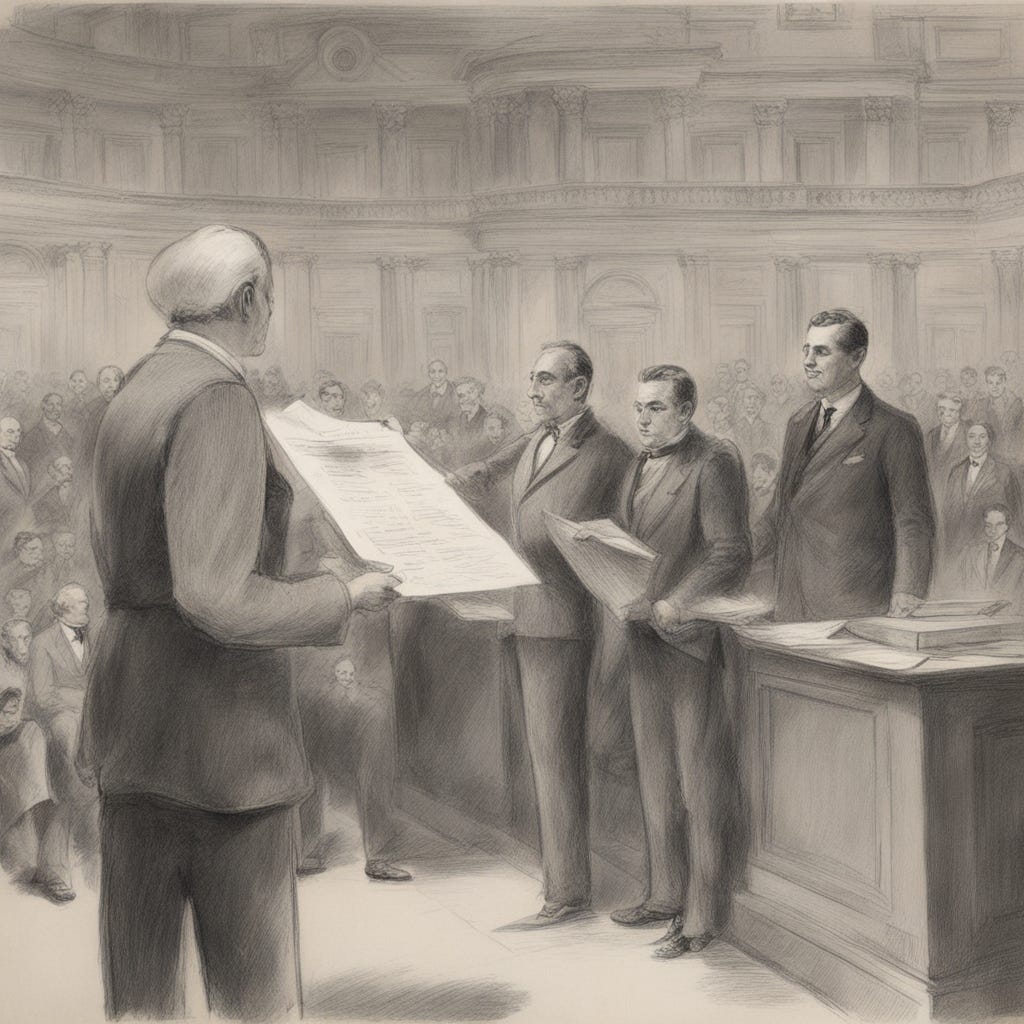On this day in legal history, October 31st, 1864, Congress admitted Nevada as the 36th state in the Union. This milestone occurred during a crucial period as President Abraham Lincoln sought re-election and support for his proposed 13th Amendment to the Constitution.
A noteworthy aspect of this process was the means by which Nevada communicated its intent for statehood. In an extraordinary display of urgency and modernity for the time, the entire text of the proposed state constitution was transmitted to Washington via telegraph. This telegraph message became renowned as the longest and most expensive telegram on record up to that date.
The admission of Nevada as the 36th state played a role in securing vital support for President Lincoln and his proposed 13th Amendment, which would eventually abolish slavery in the United States.
Biotechnology and genetic testing companies are advocating for changes to a recently implemented Montana law that imposes stringent requirements to protect consumers' genetic data privacy. Notable companies involved in this lobbying effort include GSK Plc, 23andMe Holding Co., and Ancestry.com LLC. These companies argue that the Montana law's mandates are unworkable and could hinder genetic research.
Montana's law, effective since October 1, 2023, is part of a broader trend among states to strengthen privacy protections for genetic data. It goes beyond regulating access to genetic information by insurers and employers and focuses on safeguarding data shared with genetic testing companies.
The Coalition for Genetic Data Protection, supported by 23andMe and Ancestry, advocates for a policy framework that outlines consumer transparency and consent requirements. Montana's law, however, applies to both consumer genetic testing and entities that collect, use, or analyze genetic data. It does not exempt de-identified data, making it distinct from other state laws.
The industry expressed concerns about the broad definition of genetic data, the law's application to hospitals and universities, and the unrealistic consent and disclosure requirements, claiming these concerns could impact clinical trials and research conducted in Montana.
GSK, Ancestry, 23andMe Push Montana Genetic Privacy Law Changes
The U.S. Department of Justice is going to trial to seek the blockage of JetBlue Airways' $3.8 billion acquisition of Spirit Airlines, an ultra-low-cost carrier, in a bid to preserve competition among low-cost airlines. The trial, taking place in federal court in Boston without a jury, is expected to last about three weeks. A merger between JetBlue and Spirit, the sixth and seventh largest U.S. carriers, respectively, would be the first major U.S. airline combination since 2016 when Alaska Airlines acquired Virgin America.
JetBlue has defended the deal as pro-consumer and has offered to sell Spirit's gates and slots at specific airports in an attempt to address antitrust concerns. However, the Justice Department claims that the merger would reduce competition, leading to higher fares and reduced choice for consumers. The department alleges that the deal would replace Spirit with a higher-cost airline, costing consumers over $2 billion in higher fares annually.
JetBlue contends that the merger will increase competition and provide a low-fare challenger to the dominant "Big Four" airlines. While JetBlue would become the fifth-largest domestic airline, it would still have less than a 10% market share. The case is part of the Biden administration's broader efforts to strengthen antitrust enforcement. This legal initiative comes after a previous case found that JetBlue's Northeast partnership with American Airlines violated antitrust laws, leading JetBlue to terminate the alliance while American Airlines is appealing the decision.
US seeks to block JetBlue, Spirit Airlines merger at trial | Reuters
In his column this week at Bloomberg Tax, Andrew Leahey discusses the IRS's recently announced pilot initiative for its Direct File program, which is set to launch in 13 states for the 2024 tax season. Leahey argues that this program is presented as a mobile-friendly, interview-based online service with the goal of simplifying the tax filing process while reducing associated costs and potentially reducing the reliance on for-profit tax preparation software.
Leahey believes that for-profit tax preparation companies need to adapt to remain relevant. They should offer value-added services, such as reviewing calculations, automating error-checking, providing audit defense services, and assisting with complex tax situations not supported by Direct File. Instead of lobbying against the IRS's program, Leahey suggests that these companies should embrace AI and automation, utilizing artificial intelligence and machine learning to enhance the tax filing process.
Leahey sees Direct File as a step toward democratizing tax filing, aligning with global standards and modernizing the tax infrastructure. He suggests that the for-profit tax preparation industry needs to evolve to meet the changing needs and expectations of taxpayers and embrace a collaborative approach with the IRS.
Intuit and Others Should Use AI to Complement IRS Direct File













